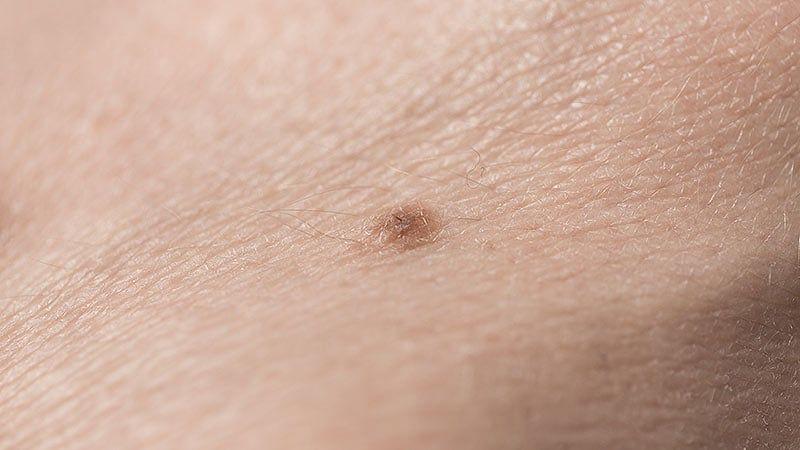AI Model Rivals Dermatologists in Assessing Skin Cancer Aggressiveness
2 Sources
2 Sources
[1]
Simple AI model matches dermatologist expertise in assessing squamous cell carcinoma
University of GothenburgSep 13 2025 A simple AI model has been shown to perform on a par with experienced dermatologists when assessing the aggressiveness of a common form of skin cancer, squamous cell carcinoma. The research was headed by the University of Gothenburg. Each year, more than 10,000 Swedes develop squamous cell carcinoma. This is the second most common form of skin cancer in Sweden, after basal cell carcinoma, and its prevalence is increasing rapidly. Squamous cell carcinoma often develops in the head and neck region and other areas exposed to the sun over many years. "This type of cancer, which is a result of mutations of the most common cell type in the top layer of the skin, is strongly linked to accumulated UV radiation over time. It develops in sun-exposed areas, often on skin already showing signs of sun damage, with rough scaly patches, uneven pigmentation, and decreased elasticity," says associate professor and dermatologist Sam Polesie, who led the study. Squamous cell carcinoma diagnosis is often easy - the challenge lies in the preoperative assessment - determining how aggressively the tumor is growing to plan and prioritize surgery appropriately. If the tumor is more aggressive, the surgery needs to be scheduled promptly, with more adjacent tissue removed. For less aggressive tumors, narrower margins can be used, with simpler procedures sufficient in some cases. Almost identical performance In many countries, Sweden included, preoperative punch biopsies are not routinely performed for suspected squamous cell carcinoma. Surgery is instead carried out based solely on the clinical suspicion of a tumor, with the entire excised specimen sent for histopathological analysis. The fact that surgery is performed without a preoperative biopsy underscores the need for assessment alternatives that do not require tissue samples, such as image analysis using artificial intelligence (AI). For the study, the researchers trained an AI system in image analysis using 1,829 clinical close-up images of confirmed squamous cell carcinoma. The AI model's ability to distinguish three levels of tumor aggressiveness was then tested on 300 images and compared with the assessments of seven independent experienced dermatologists. The results, published in the Journal of the American Academy of Dermatology International, show that the AI model performed almost identically to the team of medical experts. At the same time, agreement between individual dermatologist assessments was only moderate, underscoring the complexity of the task. Two clinical features - ulcerated and flat skin surfaces - were found to be clearly associated with more aggressive tumor growth. Tumors exhibiting these characteristics were more than twice as likely to fall into one of the two higher levels of aggressiveness. Healthcare needs should decide The use of artificial intelligence in skin cancer care has attracted a great deal of interest in recent years, although according to Sam Polesie, so far it has had limited practical impact within healthcare. He emphasizes the importance of clearly defined application areas where research can create added value for Swedish healthcare. We believe that one such application area could be the preoperative assessment of suspected skin cancers, where more nuanced conclusions can influence decisions. The model we've developed needs further refinement and testing, but the way forward is clear - AI should be integrated where it actually adds value to decision-making processes within healthcare." Sam Polesie, associate professor and dermatologist Sam Polesie is an associate professor of dermatology and venereology at the University of Gothenburg and a practicing dermatologist at Sahlgrenska University Hospital. The images comprising the study data were taken within dermatological healthcare at the university hospital between 2015 and 2023. University of Gothenburg Journal reference: Liang, V., et al. (2025). Assessing differentiation in cutaneous squamous cell carcinoma: A machine learning approach. JAAD International. doi.org/10.1016/j.jdin.2025.07.004
[2]
AI matches dermatologists in assessing common skin cancer
A simple AI model has been shown to perform on a par with experienced dermatologists when assessing the aggressiveness of a common form of skin cancer, squamous cell carcinoma. The research was headed by the University of Gothenburg. Each year, more than 10,000 Swedes develop squamous cell carcinoma. This is the second most common form of skin cancer in Sweden, after basal cell carcinoma, and its prevalence is increasing rapidly. Squamous cell carcinoma often develops in the head and neck region and other areas exposed to the sun over many years. "This type of cancer, which is a result of mutations of the most common cell type in the top layer of the skin, is strongly linked to accumulated UV radiation over time. It develops in sun-exposed areas, often on skin already showing signs of sun damage, with rough scaly patches, uneven pigmentation, and decreased elasticity," says associate professor and dermatologist Sam Polesie, who led the study. Squamous cell carcinoma diagnosis is often easy -- the challenge lies in the preoperative assessment -- determining how aggressively the tumor is growing to plan and prioritize surgery appropriately. If the tumor is more aggressive, the surgery needs to be scheduled promptly, with more adjacent tissue removed. For less aggressive tumors, narrower margins can be used, with simpler procedures sufficient in some cases. Almost identical performance In many countries, Sweden included, preoperative punch biopsies are not routinely performed for suspected squamous cell carcinoma. Surgery is instead carried out based solely on the clinical suspicion of a tumor, with the entire excised specimen sent for histopathological analysis. The fact that surgery is performed without a preoperative biopsy underscores the need for assessment alternatives that do not require tissue samples, such as image analysis using artificial intelligence (AI). For the study, the researchers trained an AI system in image analysis using 1,829 clinical close-up images of confirmed squamous cell carcinoma. The AI model's ability to distinguish three levels of tumor aggressiveness was then tested on 300 images and compared with the assessments of seven independent experienced dermatologists. The results, published in the Journal of the American Academy of Dermatology International, show that the AI model performed almost identically to the team of medical experts. At the same time, agreement between individual dermatologist assessments was only moderate, underscoring the complexity of the task. Two clinical features -- ulcerated and flat skin surfaces -- were found to be clearly associated with more aggressive tumor growth. Tumors exhibiting these characteristics were more than twice as likely to fall into one of the two higher levels of aggressiveness. Health care needs should decide The use of artificial intelligence in skin cancer care has attracted a great deal of interest in recent years, although according to Polesie, so far it has had limited practical impact on health care. He emphasizes the importance of clearly defined application areas where research can create added value for Swedish health care. "We believe that one such application area could be the preoperative assessment of suspected skin cancers, where more nuanced conclusions can influence decisions. The model we've developed needs further refinement and testing, but the way forward is clear -- AI should be integrated where it actually adds value to decision-making processes within health care," says Polesie. Polesie is an associate professor of dermatology and venereology at the University of Gothenburg and a practicing dermatologist at Sahlgrenska University Hospital. The images comprising the study data were taken within dermatological health care at the university hospital between 2015 and 2023.
Share
Share
Copy Link
A simple AI model developed by researchers at the University of Gothenburg has shown comparable performance to experienced dermatologists in evaluating the aggressiveness of squamous cell carcinoma, a common form of skin cancer.

AI Model Challenges Dermatologists in Skin Cancer Assessment
Researchers at the University of Gothenburg have developed a simple AI model that performs on par with experienced dermatologists when assessing the aggressiveness of squamous cell carcinoma, a common form of skin cancer
1
. This breakthrough could potentially revolutionize preoperative assessments and surgical planning for skin cancer patients.The Challenge of Squamous Cell Carcinoma
Squamous cell carcinoma is the second most common form of skin cancer in Sweden, affecting over 10,000 Swedes annually
1
. It typically develops in sun-exposed areas and is strongly linked to accumulated UV radiation over time. While diagnosis is often straightforward, the real challenge lies in determining the tumor's aggressiveness before surgery.AI Model Development and Performance
The research team trained an AI system using 1,829 clinical close-up images of confirmed squamous cell carcinoma cases. The model's ability to distinguish three levels of tumor aggressiveness was then tested on 300 images and compared with assessments from seven experienced dermatologists
2
.Results published in the Journal of the American Academy of Dermatology International showed that the AI model performed almost identically to the team of medical experts. Interestingly, agreement between individual dermatologist assessments was only moderate, highlighting the complexity of the task
1
.Related Stories
Key Findings and Implications
The study identified two clinical features - ulcerated and flat skin surfaces - as clear indicators of more aggressive tumor growth. Tumors with these characteristics were more than twice as likely to fall into higher levels of aggressiveness
2
.This AI model could be particularly valuable in countries like Sweden, where preoperative punch biopsies are not routinely performed for suspected squamous cell carcinoma. The technology offers a non-invasive alternative for assessing tumor aggressiveness, potentially improving surgical planning and patient outcomes
1
.Future Prospects and Challenges
While the use of AI in skin cancer care has generated significant interest, its practical impact on healthcare has been limited so far. Dr. Sam Polesie, the lead researcher, emphasizes the importance of integrating AI where it adds real value to decision-making processes in healthcare
2
.The model developed in this study requires further refinement and testing before clinical implementation. However, it represents a promising step towards more accurate and efficient preoperative assessments for skin cancer patients, potentially reducing the need for invasive procedures and improving overall care quality.
References
Summarized by
Navi
[1]
[2]
Related Stories
Recent Highlights
1
Samsung unveils Galaxy S26 lineup with Privacy Display tech and expanded AI capabilities
Technology

2
Anthropic refuses Pentagon's ultimatum over AI use in mass surveillance and autonomous weapons
Policy and Regulation

3
AI models deploy nuclear weapons in 95% of war games, raising alarm over military use
Science and Research








